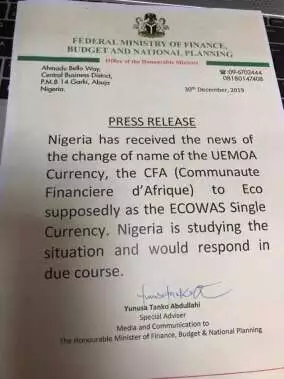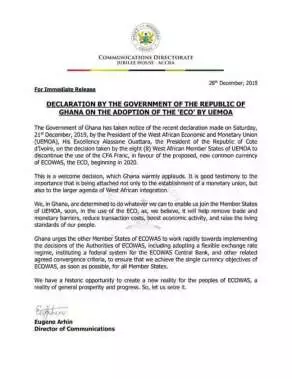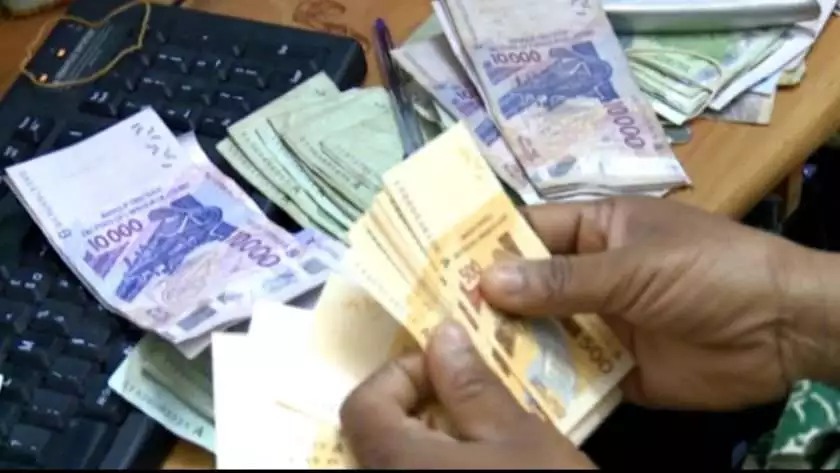Nigeria’s conflicting reaction to the economic issues of the ECOWAS sub-region may have given diplomatic loopholes for France to hijack the establishment of the sub-region’s common currency, the ECO, leaving Nigeria and Ghana to struggle under the Francophone coup on the Ecowas Diplomatic Economy.
The establishment of an ECOWAS common currency for the 15 west African countries has been on the table for years, with Nigeria, with the largest West African Economy, at the driving seat of the new deal which will ultimately replace the Naira as it’s national Currency.
Last week, the sub-region met to finalize the establishment of the common currency, which is expected to be launched in the year 2020.
But while the meeting was underway, Emmanuel Macron, the French Prime minister, and Alasane Ouatarra, the president of Cote Ivoire, held a joint press conference to announce that the 8 Francophone countries have decided to adopt the Eco as their common currency, thereby jeopardizing the 30 years of negotiations that could have maintained Nigeria as the big brother of the sub-region.
With this, France plots to control the printing and establishment of the new currency, presenting non Francophone members with subsumed economic personalities, in a coup that drags other non Francophone countries into France’s clandestine neocolonialism.
France has been living off the economy of the Francophone countries through economic control of the CFA, the currency of the Francophone countries. The implications are that Nigeria and other West African countries will have to enter the Eco on french terms. Nigeria has been sending conflicting signals in West Africa by closing the borders while pledging allegiance to the ECOWAS free trade, a situation that has pitched it against her neighbors. Ghana, for instance, has been reeling under the impact of the Nigerian border closure.
But the greatest victims of the border closure are the three Francophone countries, a situation analysts believe informed France’s plan of Nigeria’s economic isolation from the rest of Africa. Paris has not been comfortable with the Nigerian economic influence within the sub-region, and the border closure appears to be hurting the economy of France more than expected.
Unfortunately, Nigeria is being perceived as having no clear economic direction besides constant borrowing. After thirty years of being at the forefront of the negotiations, Nigeria  came out with a statement that they are “Studying the situation”. Ghana, however, has taken a firm stand.
came out with a statement that they are “Studying the situation”. Ghana, however, has taken a firm stand.
Foreign reserves of Francophone countries are tied to the French currency, with each country having a minimum of 50% of their foreign reserves in the French currency. No international transactions can be done by Francophone countries without passing through France.
Discover more from The Source
Subscribe to get the latest posts sent to your email.








